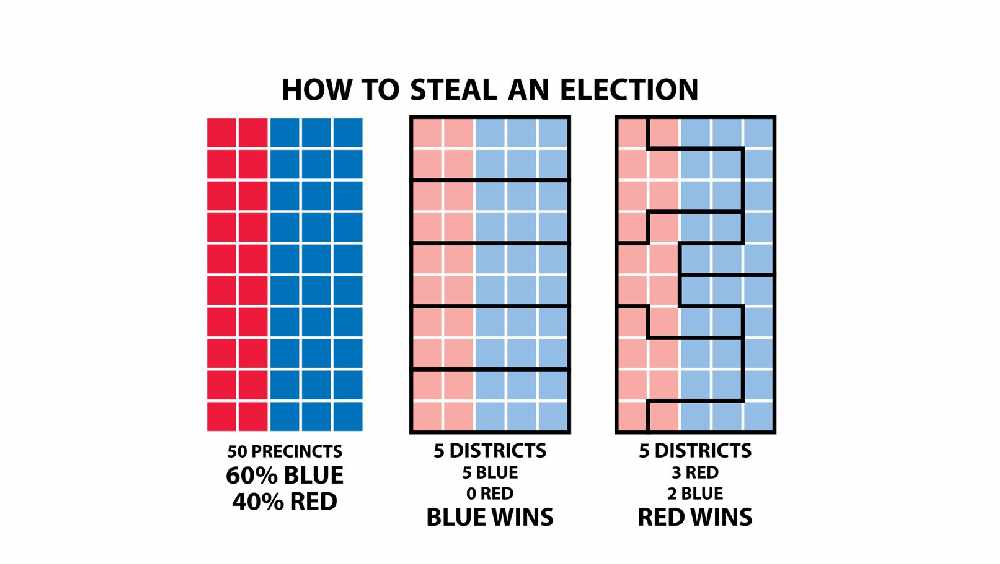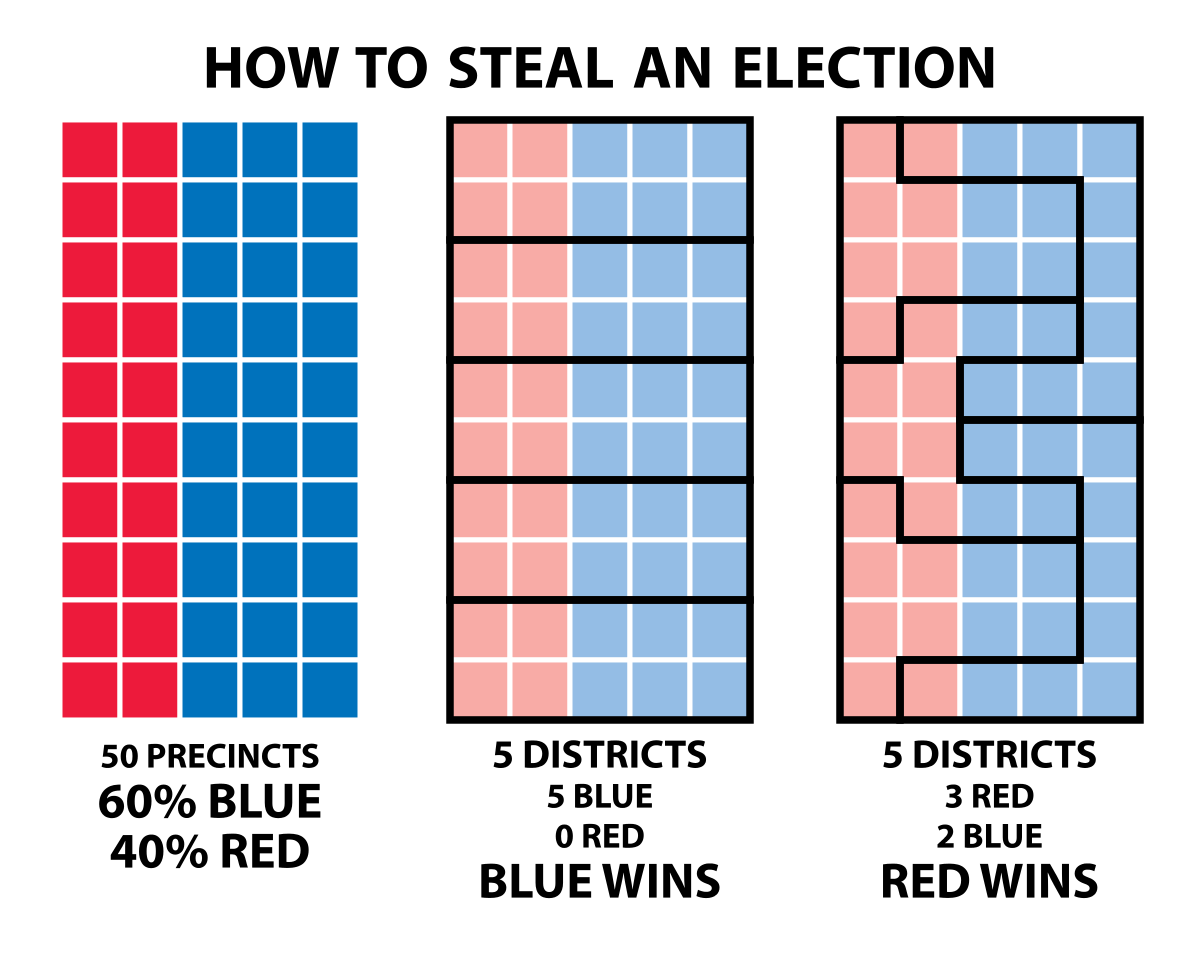 By Alan Minsky
By Alan Minsky
2020 is an extremely significant election year. Of course, every four years we are invariably told "this is the most important election of our lifetime." However, this time the hyperbole rings true.
Thanks to COVID, America is in the throes of its worst domestic crisis since the Civil War. Also, the climate catastrophe is fast approaching the point of no return - and we have a President willing to sacrifice all scientific evidence and guidance when, Caligula-like, it doesn't boost the immediate needs of his fragile ego. But we all know about him and about that election.
I'm here to tell you about two super-important elections for the future of American society that you probably haven't heard about: one that involves tens of thousands of candidates in every nook-and-cranny of the country this fall; and the other that wraps up on August 4th in one Congressional district in Michigan.
Mega-Important Election #1 (that doesn't directly involve Donald Trump):
The Battle to Control State Legislatures; and, hence, who gets to Redraw Congressional and Legislative Districts - aka The Battle over Gerrymandering - aka Our Best Chance until 2040 to Drive a Wooden Stake through the Heart of the Bloodsucking Vampire known as the GOP.
How's that for a catchy title?
Indeed, this is a hard one to explain; and, thus, it's difficult to motivate people about. That is why Republican insiders are pretty confident that even while they are likely to lose the 2020 national election in a massive landslide - they will emerge victorious.
Come again?
Ok, I will explain as best I can.
America produces a Census report every ten years. By law, every State Government re-draws their Congressional and Legislative districts according to the results of that Census - so that the districts are determined well in advance of the next round of elections, which will be in 2022. These districts then remain in place until the next Census at the end of the decade. In 31 states, the Legislature determines the districts; almost all of the Legislatures currently held by the GOP are among these 31.
Now, wherever the Republican Party controls a State Legislature in charge of this process, they create districts that will, predictably, produce results to their advantage - in a very significant way. This is called gerrymandering.
How do they do this? They use state-of-the-art computer modelling to divide up the population so that Democratic voters are heavily concentrated in the same district.
As an example, let's imagine a hypothetical state with 10 Congressional districts that is a razor-close 50-50 swing state in the Presidential election. In a fair system you would expect the state's Congressional District to include five members from each party. Not a chance, if the GOP controls the State House.
Given the opportunity, the GOP will pack as many Democratic voters as possible into two districts, generating 95-5 Democratic landslides there (and this is relatively easy to do since Democrats tend to live in and around cities). Then the GOP-controlled Legislature will design the other eight districts as comfortable 60 to 65% Republican majorities.
Now let's do the math: ((95 X 2) + (39 X 8)) / 10 = 50.2%.
So, a state that is a toss-up ends up sending 8 Republicans and 2 Democrats to the U.S. House of Representatives - and a similar imbalance will be created in both houses of their State Legislatures (more about this later).
This arithmetic is not speculation, nor is it motivated by partisanship - it is fact. Drawing imbalanced districts is national GOP policy. Why? Because the GOP braintrust (the Koch Brothers, the Mercers, the U.S. Chamber of Commerce, et al) understand that the only way for them to compete with the Democratic Party in the 21st Century is to have an imbalanced playing field. After all, the GOP is both a racist white supremacist party in a country that is becoming increasingly less white; and a party blatantly committed to prioritizing the interests of the rich in a society with ever-increasing wealth disparity. It's pretty tough to win fair elections with those policies
Yet it works. The GOP gained, or maintained, control of State Legislatures in Wisconsin, Ohio, North Carolina, and Pennsylvania in 2010, the last Census year. I could include a slew of other states that the GOP maintained control of in that landslide election, the year of the Tea Party; but let's just focus on these four "swing-states" because that keeps the math simple. In all four, we should expect 50-50 delegations - instead the score was a whopping 37 to 14 - an artificial gain of 11 seats in just four states.
Now, it is true that the courts intervened in Pennsylvania before 2018 (because the GOP screwed up there and failed to cross their racist t's and dot their anti-democratic i's) - but this just proves the point. Before the courts intervened in Pennsylvania the tally there was 13-5, afterwards 9-9.
Currently, Republicans hold trifectas in 21 states - i.e. they control both State Houses and the Governor (who is not tasked with drawing up the districts, but can veto the Legislature's proposed districts in many states). As the math above shows, if the Democrats can knock that number down by even five or six states, they will dramatically increase their prospects for controlling the U.S. House of Representatives for the next few election cycles - as well as wrest away the GOP's ironclad control over those states.
Sounds easy, but it's not for two reasons. One, the GOP didn't just gerrymander U.S. Congressional districts in the states they controlled after their 2010 landslide, they did it to State Assembly and State Senate districts as well. So, even if we see a Presidential landslide election, in order to win back State Legislatures it would have to be so great a Democratic tsunami that it would outperform expectations by 10 to 15 percent in countless districts across states that heretofore have been GOP strongholds. That's a big lift.
The second reason it will be very difficult for Democrats to win their fair share of State Houses this autumn is this: if the Presidential election is setting up to be a landslide, GOP money will abandon Trump and flood into local races that, according to the lingo of contemporary corruption (oops, did I say corruption, I meant politics), "can be bought on the cheap." That makes it a gargantuan lift.
But, it's not impossible because we're living in impossible times. However weak a candidate you may think Joe Biden is, the recent polls are probably accurate - in other words, he should crush this. After all, Joe has been gifted the simplest, most compelling pitch a politician could ever hope for - albeit born from a terrifying reality. With a straight face, he can say, "this guy and his GOP cohorts are killing you, I will save your life." Given that there is complete legitimacy to that absurd-sounding claim, I think he and the Democrats are going to win a lot of votes in unexpected places.
It's not impossible, but it's going to take a level of sophisticated coordination and inspired motivation - not exactly what the contemporary Democratic Party is known for. So, here's an added incentive - and the punchline of this entire piece - if it's gonna happen, and it's gotta happen now. Why? Because Census year elections only happen every ten years - and they are only in sync with Presidential elections every twenty years.
While 2018 was an exception because of popular revulsion with Trump; historically, Democratic turn-out is massively higher in Presidential years than midterm elections. If they don't dethrone the Republicans now in places where they are vulnerable like Wisconsin, North Carolina, Ohio, Texas, Georgia, et al, it's unlikely they're going to get it done in 2030.
To summarize: there is simply no path forward for the GOP to remain competitive in the U.S.House of Representatives or in most States without maintaining control of State Legislatures, which allows them to continue their regime of gerrymandering, plus voter suppression. Absent these two anti-democratic practices they will enter a phase of terminal decline (at least until they make a significant ideological shift, but that seems a long way off given their current personnel). But this year, 2020, is probably the only chance in the next twenty years for Democrats to deliver such a defeat to the GOP - because absent a Democratic victory in these State Legislatures in 2020, the extreme gerrymandering will continue.
Noam Chomsky describes the contemporary Republican Party as the "most dangerous organization in human history." The world can probably not survive another 20 years of GOP power. In contrast, widespread Republican losses across the country at the State Legislative level in 2020 would shatter the strategy of the contemporary American right-wing.
As a way of signaling the importance of Census-year State Legislative elections, political comedian Samantha Bee correctly described the 2010 midterms "the most important election ever that you slept through." In 2020, it's even more important...
...and now you can't claim ignorance.
Btw, while it's important not to get ahead of ourselves, I think if the Democrats could knock out the Republicans in a critical mass of State Legislatures this year, it would mean the Democratic Party would have to start to deliver decent policies for the people. Since the moderate wing of the Democratic Party clings to a moribund neo-liberal ideology loathed by the general population and bereft of any positive solutions to society's problems; progressives should be able to seize the initiative. Which brings us to the subject of next week's column, which is part two of this essay:
Mega-important Election #2 (that doesn't directly involve Donald Trump): the August 4th primary election in Michigan's 13th Congressional District. Will the American right-wing's dreams come true? Could they knock out a member of the Squad? Or will the Rashida Tlaib continue the progressive winning streak? And what does the struggle between progressives and moderates in the Democratic Party mean for the country and the world?
















